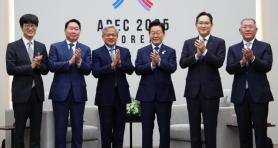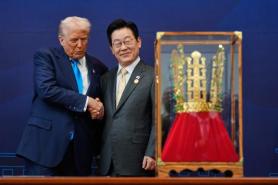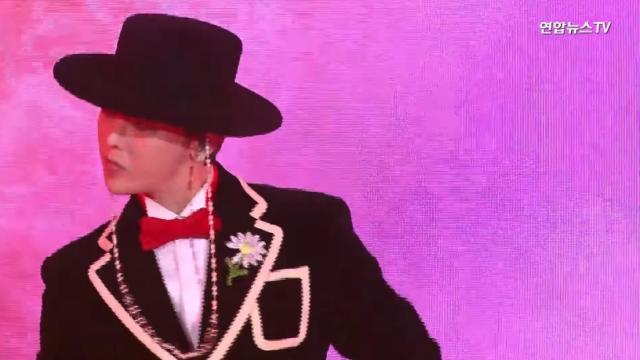
SEOUL, November 05 (AJP) - "Oh my gat, the real one has arrived," K-pop star G-Dragon wrote on social media, sporting a black fedora draped with a pearl chain resembling a traditional Korean "gat" headpiece he wore while performing his latest hit "Power" at the APEC Leaders' Meeting gala in Gyeongju last Friday.
The pun paired his fashion humor with a nod to the gat reimagined by the "Saja Boys" in Netflix's hit anime "KPop Demon Hunters" while reflecting his excitement about performing before an audience of global leaders.
His performance of "Drama" using a microphone wrapped in the Korean and APEC flags further accentuated K-pop's persuasive power to captivate no-nonsense global leaders, including Chinese President Xi Jinping and Canadian Prime Minister Mark Carney.
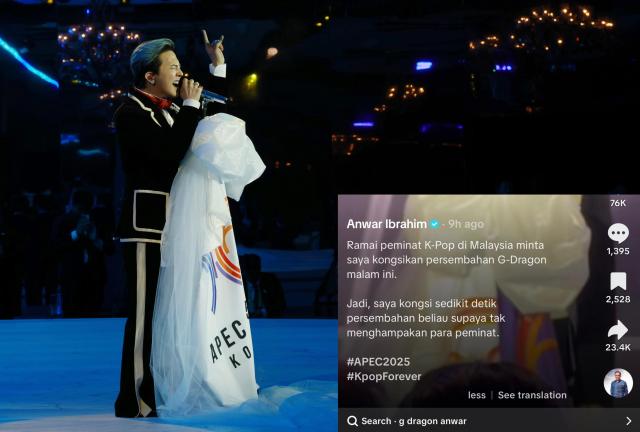
Right: Malaysian Prime Minister Anwar Ibrahim shared a short clip of G-Dragon's performance at the APEC 2025 welcome dinner. Screen capture from Ibrahim's social account.
For some leaders, it was the most memorable moment of their visit. Malaysian Prime Minister Anwar Ibrahim later posted a clip of the performance with the hashtag #KpopForever, calling it a highlight of the summit.
Celebrity-level political figures — U.S. President Donald Trump, China's Xi, and Nvidia CEO Jensen Huang — captured most headlines during the weeklong summit in historic Gyeongju. But it was Korean culture, especially K-pop, that shared the global spotlight. The rare APEC consensus, named the Gyeongju Declaration, for the first time elevated culture and creative industries as a formal regional growth engine in a leaders' summit document — placing it on par with trade, investment, and digital cooperation.
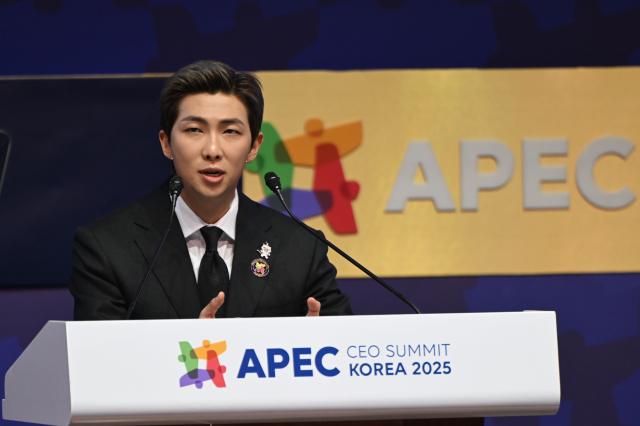
K-pop's ascent as an economic asset was reinforced again at the APEC CEO Summit, where BTS leader RM delivered a keynote speech on Korea's soft power.
"K-pop is like bibimbap," RM said. "You don't turn away elements of Western music — hip-hop, R&B, EDM. Like bibimbap, each part keeps its identity but mixes to create something new, fresh, and delightful."
This inclusive originality RM highlighted is the essence of K-pop's universal appeal — and a form of soft power capable of moving even the world's toughest minds.
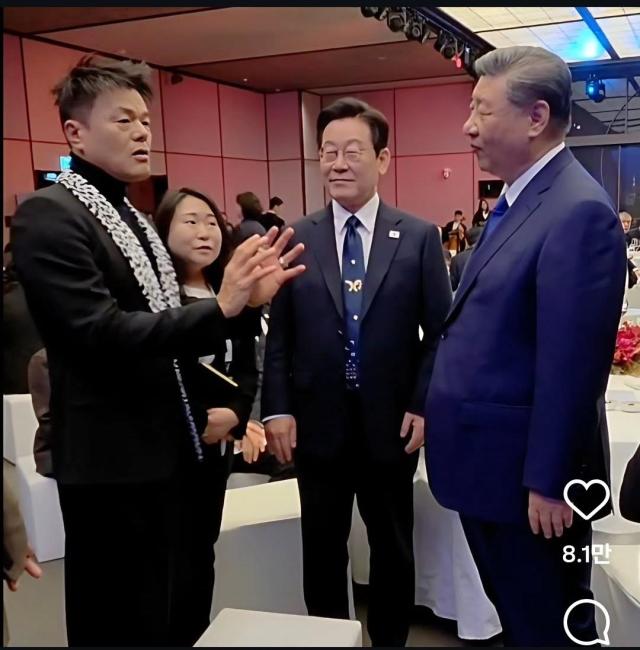
President Lee Jae Myung brought JYP Entertainment founder and producer Park Jin-young — newly tapped as co-chair of a presidential committee on pop culture — to an informal meeting with Xi.
During the meeting, Xi was said to have spontaneously floated the idea of hosting a large-scale K-pop event in Beijing, instructing Foreign Minister Wang Yi on the spot to explore the idea. The leak immediately stirred expectations of China easing its years-long unofficial ban on Korean entertainment in fear of "corrupting" young Chinese people.
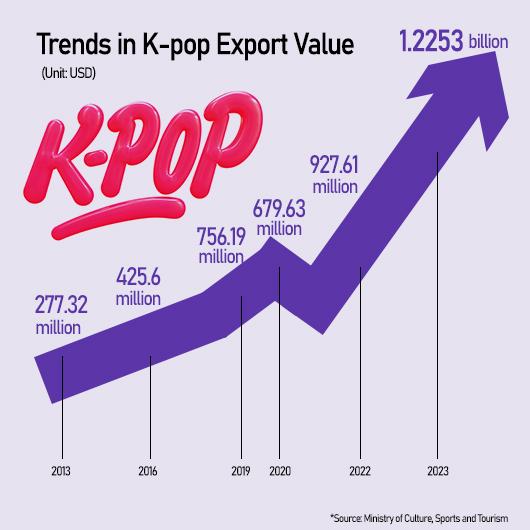
The scale of the industry is now too large for governments at home and abroad to overlook. According to the Ministry of Culture, Sports and Tourism, Korea's music exports reached $1.2 billion in 2023, up from $277 million in 2013 — a 4.4-fold jump. At the current pace, exports are expected to exceed 2 trillion won ($1.4 billion) this year.
The K-pop events market — concerts, fan meets, festivals — is also set for explosive expansion. Allied Market Research projects the global sector, valued at $8.1 billion in 2021, will grow at an annual average of 7.3 percent, reaching $20 billion by 2031.
Copyright ⓒ Aju Press All rights reserved.


